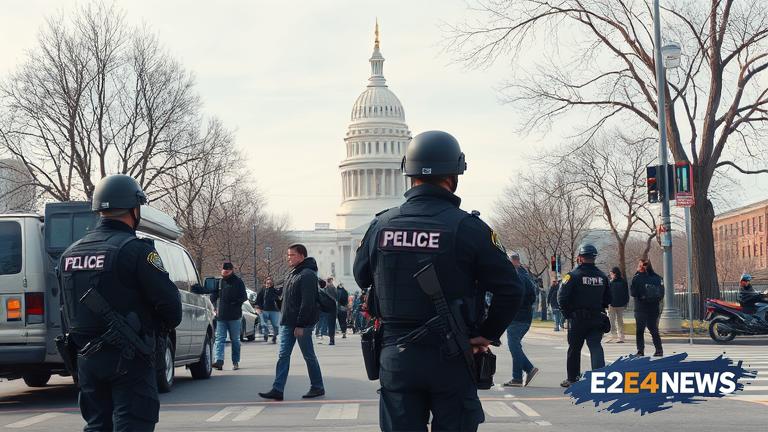The recent setup of a checkpoint by Metropolitan Police Department (MPD) and federal agents in Washington D.C. has sparked concern among residents, with many questioning the necessity and potential implications of such a measure. The checkpoint, which was established in a residential area, has been the subject of much debate, with some arguing that it is a necessary step to ensure public safety, while others see it as an overreach of authority and a potential infringement on civil liberties. Residents have expressed concerns about the lack of transparency and communication from the authorities regarding the purpose and duration of the checkpoint. Some have also raised questions about the role of federal agents in the operation, with some speculating that it may be related to a larger effort to crack down on crime in the area. However, others have pointed out that the presence of federal agents may also be seen as an attempt to exert greater control over the city’s law enforcement, potentially undermining the authority of local officials. The MPD has sought to reassure residents that the checkpoint is a temporary measure aimed at addressing specific public safety concerns, but many remain skeptical. The incident has also sparked a wider debate about the balance between public safety and individual freedoms, with some arguing that the checkpoint is a necessary evil in the face of rising crime rates, while others see it as a slippery slope towards greater surveillance and control. As the situation continues to unfold, residents and community leaders are calling for greater transparency and accountability from the authorities, as well as a more nuanced approach to addressing public safety concerns. The checkpoint has also raised questions about the relationship between law enforcement and the community, with some arguing that it is a symptom of a larger problem of mistrust and lack of communication. In response to the concerns, the MPD has announced plans to increase community outreach and engagement, in an effort to rebuild trust and address concerns about the checkpoint. However, many residents remain unconvinced, and the incident is likely to continue to be a source of controversy in the coming days and weeks. The setup of the checkpoint has also sparked a wider conversation about the role of law enforcement in society, with some arguing that it is a necessary institution for maintaining public safety, while others see it as a symbol of systemic oppression and inequality. As the debate continues, it is clear that the issue of the checkpoint is complex and multifaceted, and will require a nuanced and thoughtful approach to resolve. The city’s residents are watching the situation closely, and are demanding greater transparency and accountability from their leaders. The incident has also highlighted the need for greater community engagement and outreach, as well as a more collaborative approach to addressing public safety concerns. In the end, the setup of the checkpoint has sparked a necessary conversation about the balance between public safety and individual freedoms, and the need for a more nuanced and thoughtful approach to law enforcement. The city’s leaders must now work to address the concerns of residents, and to find a solution that balances the need for public safety with the need to protect individual rights and freedoms. The situation is a reminder that the relationship between law enforcement and the community is complex and multifaceted, and requires a thoughtful and nuanced approach. The city’s residents are looking to their leaders for guidance and reassurance, and it is up to them to provide it. The incident has also sparked a wider conversation about the need for greater transparency and accountability in law enforcement, as well as the need for a more collaborative approach to addressing public safety concerns. As the situation continues to unfold, one thing is clear: the setup of the checkpoint has sparked a necessary conversation about the balance between public safety and individual freedoms, and the need for a more nuanced and thoughtful approach to law enforcement.
